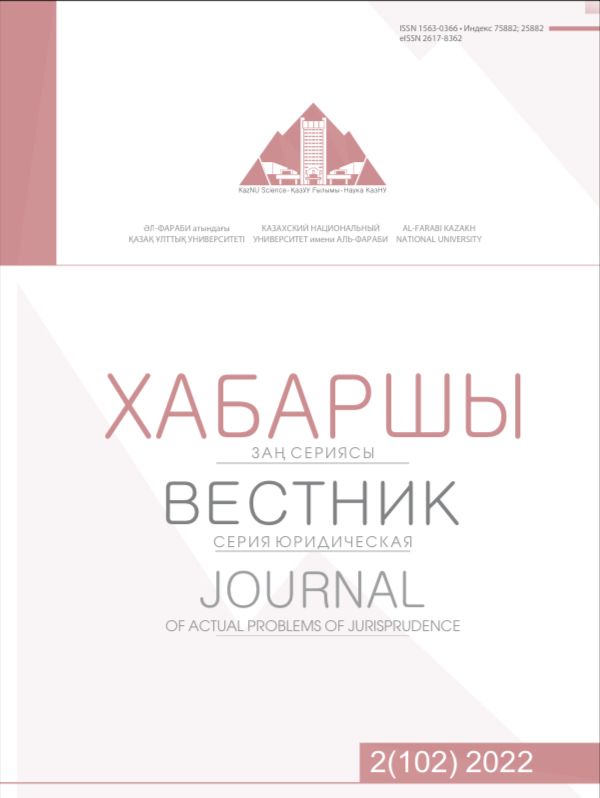The issue of Nagorno-Karabakh and the peculiarities of local self-government in the Republic of Azerbaijan
DOI:
https://doi.org/10.26577/JAPJ.2022.v102.i2.016Abstract
In the autumn of 2020, the armed conflict over and in the Nagorno-Karabakh escalated for the next time in its 30-year history of existence. Unlike the 90s, the escalation and military actions lasted not 4 years, but 44 days. Military operations were suspended by a truce reached with the assistance of the Russian Federation. As a result of the military actions, Azerbaijan regained control over all its occupied territories around its former autonomous region of Nagorno-Karabakh and a significant part of the former autonomous region itself. Azerbaijan has declared the end of the conflict, but Armenia has not. The dispute between the parties and some questions remained. In this article, we explored some of these issues, in particular: what was the conflict – ethnic or territorial? Why did the first administrative-territorial decision based on self-government in the form of autonomy within the USSR not work? And how the current system of local self-government in Azerbaijan can solve the remaining problems and demands of Armenians living in the mountainous part of Karabakh to obtain self-government. The study examines the issues of legal regulation of municipal legal relations.
Keywords: international law, UN law, ethnic conflict, territorial conflict, USSR law, conflict in and for the Nagorno-Karabakh, local government law, local self-government, municipal law, local executive power



